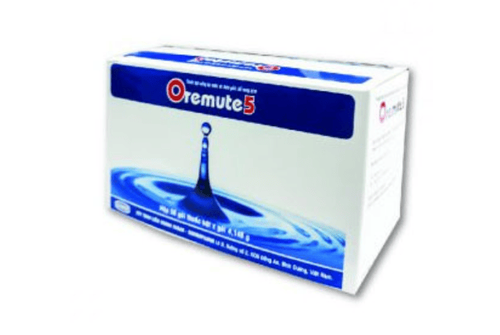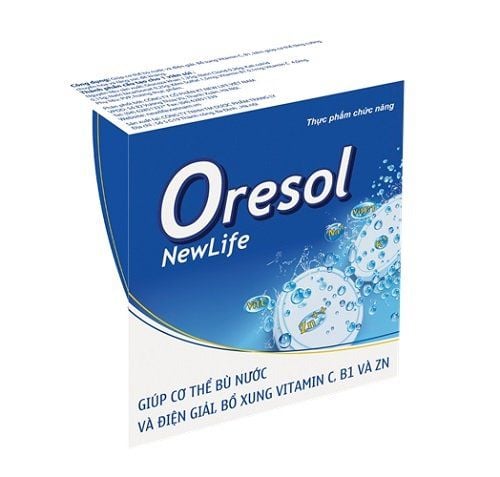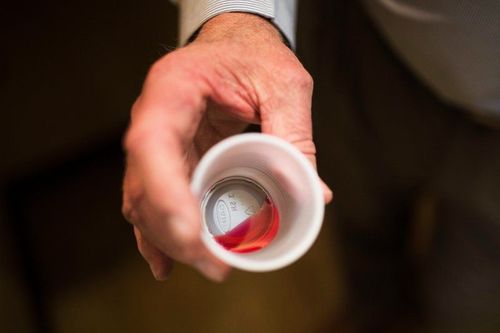This is an automatically translated article.
The article was professionally consulted by resident Doctor Duong Van Sy - Neonatologist - Pediatrics - Neonatology - Vinmec Hai Phong International General HospitalDiarrhea has many causes, in which the cause of Rota Virus accounts for the largest proportion. The disease is often the cause of many serious illnesses and deaths in young children. Many parents wonder if rotavirus diarrhea is contagious? Let's find out in the article below.
1. What is the acute diarrhea caused by Rota virus, what are the symptoms?
Rotavirus acute diarrhea is an acute viral disease. Rota Virus is a 20-sided spherical virus, with an average diameter of 65-70 nm, the nucleus is nucleic acid, surrounded by two capsid filaments. In particular, the outermost layer forms a ring, so the new virus is called Rota (wheel). Rota Virus is persistent in the environment, can live for hours on hands and days on solid surfaces. This virus is still capable of causing illness when living in feces for a week. Due to these properties, Rota virus has become an obsession of parents and children.
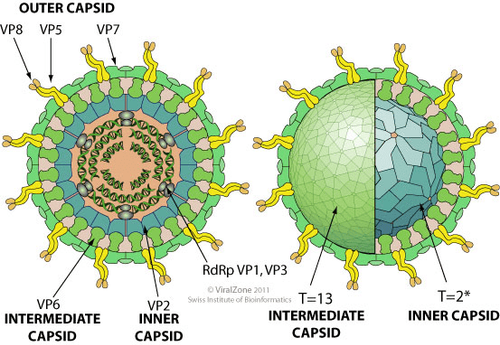
Children with the disease will initially have symptoms of diarrhea with loose stools from 4 times a day, then the disease will progress with symptoms of vomiting, diarrhea, abdominal pain, dehydration, easily leading to collapse and death death if not treated promptly. Specifically, after being infected with acute diarrhea about 1-2 days, children have symptoms of vomiting and diarrhea, vomiting appears before diarrhea about 6-12 hours and can last for 2-3 days, children vomit a lot. on the first day and gradually decreased with the onset of diarrhea. Diarrhea increases for a few days, then subsides, lasting 3-9 days. Accompanying symptoms are: moderate fever, abdominal pain, possible cough and runny nose.
Acute diarrhea in children causes vomiting and diarrhea many times a day, so children infected with Rota virus are very susceptible to dehydration. Parents should pay attention to the most important thing is to properly rehydrate and electrolytes for their children and observe the manifestations that occur such as: thirst, dry lips, dry tongue, dry skin, little urine, irritability, fussiness ,... to take the child to a medical facility for timely treatment.
2. Is rotavirus diarrhea contagious?
Rota Virus usually exists in a contaminated environment, through contaminated food and objects, the virus enters the body through the digestive tract, a few through the respiratory tract. The virus is capable of being transmitted from person to person through the fecal-oral route, the feces of a patient or a healthy person carrying the virus released under favorable conditions will cause disease in a new body.
The incubation period is from 1-7 days, an average of 2-3 days since the virus enters the body. The transmission period can last up to 3 weeks, but is usually about 7-8 days from the onset of the illness.

Usually, children younger than 3 months old are less likely to get sick, when the antibodies transmitted by the mother weaken gradually, from about 3-6 months to 2 years old, which is also the time when children are most susceptible to the disease. Immunity to rotavirus appears mostly in young children after infection but is not stable, so they are still susceptible to re-infection.
3. Measures to prevent diarrhea
Acute diarrhea in children can be prevented by ensuring water hygiene, eating and drinking according to the provisions of food hygiene and safety such as not eating raw or undercooked meat, washing vegetables and fruits first. When eating raw, educating about eating and drinking hygiene habits, washing hands before eating, cleaning utensils used for children (especially children under 6 months old), mothers must maintain good hygiene during the feeding period. breastfeeding.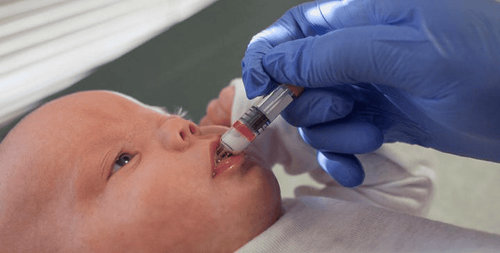
Prevention of acute diarrhea in children by disinfecting, disinfecting wastes and utensils related to the patient. Manage manure, handle manure very well (use septic tanks, double-compartment latrines), do not use fresh fertilizers to fertilize trees and fruits. Active prevention: According to the recommendations of the World Health Organization, Rota vaccine should be given to children from 2 months of age. In January 2006, the World Health Organization approved the use of two Rota vaccines (RotaTeq and Rotarix). Vinmec International General Hospital is currently providing a Package Immunization Program with a variety of vaccines for different audiences, from infants, young children, adults, and women before and during pregnancy pregnant.
Please dial HOTLINE for more information or register for an appointment HERE. Download MyVinmec app to make appointments faster and to manage your bookings easily.
Importance of vaccinations on time
As recommended by medical experts, even during an epidemic, parents should still take their children to get vaccinated on schedule. Delaying the injection schedule can increase the risk of disease that has been ruled out or make infectious and superinfectious diseases such as influenza, measles, chickenpox, pharyngitis, pneumonia... become more severe and difficult to treat. than.
In the current epidemic situation, vaccination at the right time and on the right schedule is very important and necessary to promptly prevent the vaccinated disease and to not be confused with other diseases, not to cause worry for the family and friends. community. If a child has a cough or fever at this time, parents will be very alarmed as to whether this symptom is due to Covid-19 or another disease because some of the symptoms of Covid-19 infection are like flu or respiratory illnesses. other
Within the first 5 years of life, children can only build a complete immune system, so full vaccination is an effective way to strengthen children's resistance. Parents should note that when taking their children to get vaccinated, they should strictly follow the recommendations of the World Health Organization (WHO) and the Ministry of Health, such as wearing a mask properly, washing hands often with an antiseptic solution. In addition, parents are always updated with correct information about this strain of Covid -19 to protect themselves and their families from Corona Virus.
In areas where there is no epidemic, mothers can still have their children vaccinated according to the age-appropriate vaccination schedule, but avoid crowded places, make an appointment in advance to avoid waiting and go to the facility reliable medical facilities.
>> See more: Should vaccinations be delayed during the Covid-19 epidemic? expert advice by Specialist Doctor II Quach Nguyen Thu Thuy - Pediatric Center - Vinmec Times City International Hospital






